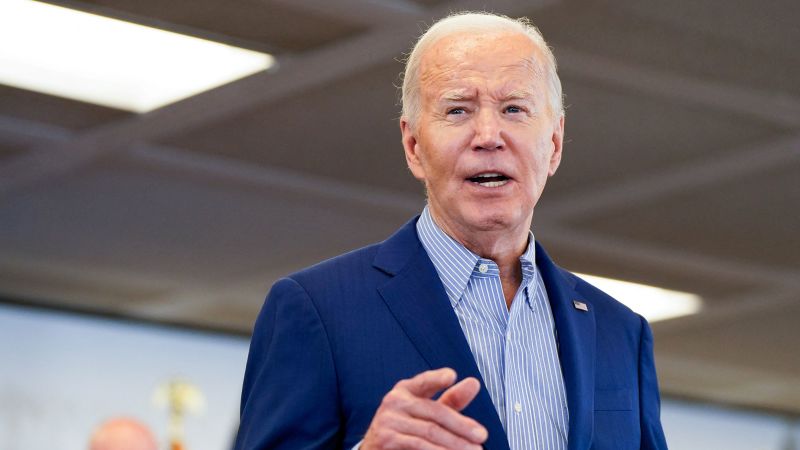The Senate’s vote on Tuesday to approve new aid for Ukraine marked the end of a six-month effort by the White House to build support for the measure. President Joe Biden and his team engaged in both public and private advocacy for the aid package, focusing on House Speaker Mike Johnson. Biden directed his team to emphasize the consequences of inaction on Ukraine’s battlefield situation and the national security implications for the US in their conversations with Johnson and his staff. Despite initial resistance, the effort paid off with the passage of the $95 billion foreign aid package, including nearly $61 billion for Ukraine.
The president made a strong case for the aid package early on, linking Ukraine’s battle against Russia to Israel’s conflict with Hamas. Biden emphasized the importance of not letting terrorists and tyrants win, rallying Western support for Ukraine. The White House faced challenges working with a new House speaker who had previously voted against assistance for Ukraine. Biden’s team maintained regular contact with key lawmakers, refraining from targeted attacks and instead focusing on the need for Republicans to act. The administration facilitated briefings for House members on Ukraine, working closely with bipartisan national security committee chairs.
Efforts to push Ukraine aid forward included regular briefings, meetings with congressional leadership, and a direct pitch from Ukrainian President Zelensky to Johnson. Despite initial roadblocks and challenges, the urgency of the situation picked up following Iran’s attack on Israel, leading to momentum for assistance to both Ukraine and Israel. Johnson’s decision to support foreign aid, despite opposition from his right flank, led to the House passing the aid package with bipartisan support. Biden assured Zelensky that help was on the way, with the aid package aimed at strengthening Ukraine’s defense capabilities.
The White House faced hurdles in securing the aid package, including failed border deal negotiations and political obstacles. Senate leaders proceeded with the national security package without a border deal, placing the responsibility on Johnson in the House. Biden hosted congressional leaders to discuss efforts to avoid a government shutdown and push for greater aid for Ukraine. The escalating situation in Ukraine, coupled with global events, contributed to Johnson’s decision to move forward with the aid package, leading to its passage in the House with bipartisan support. Biden celebrated the passage and assured Zelensky that help was on the way.
The aid package for Ukraine represents a significant foreign policy win for Biden, who spent years rallying support for the war-torn country in its fight against Russia. The package also includes funding for Israel, humanitarian assistance, and support for the Indo-Pacific region. Despite challenges and obstacles along the way, the administration’s persistent efforts and strategic engagement with key lawmakers and international partners ultimately led to the successful passage of vital aid for Ukraine. Biden’s commitment to providing assistance underscores the importance of standing with allies and defending democracy against external threats.


